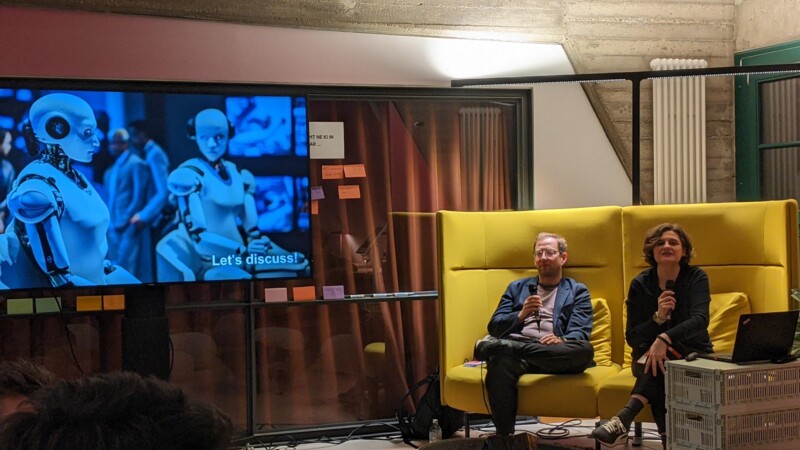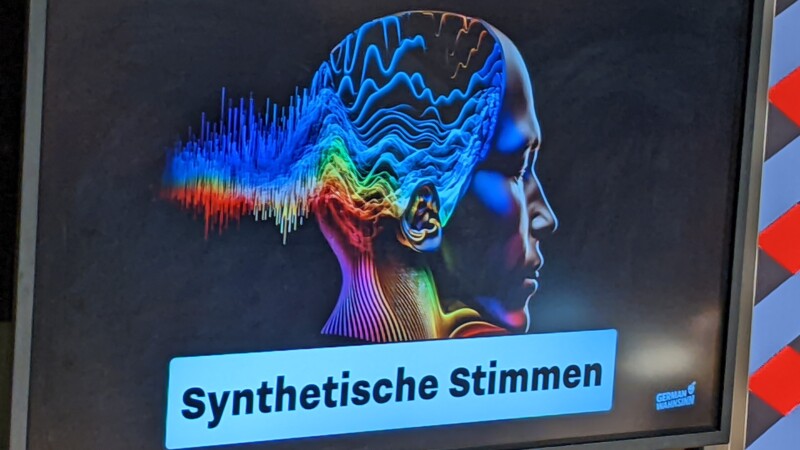"This year, the content industry will be marked by hyper-personalisation, especially through audio. "Technologies such as image-to-sound or sound-to-image will take inclusion and accessibility to a new level," said Philipp Feit, Chief Creative Officer of German Wahnsinn. Immersive audio will gain importance in the gaming industry e.g., non-linear conversations with so-called non-player characters (NPC), he predicted. Apart from audio, there is also potential for personalisation. Thanks to AI, content can be adapted across platforms and for different target groups. Data and AI are becoming increasingly important in journalism "for understanding customer needs and user journeys and thus building sustainable customer relationships," according to Carina Laudage, Managing Director of Gruner + Jahr. The development of different technologies could lead to novel approaches to personalised and inclusive formats.
Twenty nextMedia.Hamburg experts have taken a look at possible trends in 2025 with the balance between technological innovation and human values dominating the agenda. Hamburg News presents the five most important trends in the media sector.
1. Hyper-personalisation and accessibility revolutionising content
2. Keeping AI agents in check and combatting disinformation
The proliferation of AI is raising ethical questions. Zamina Ahmad, founder of Shades & Contrast, wonders: "How much digital autonomy are we willing to sacrifice for progress?" The AI agents of tech companies such as Open AI, Microsoft and Google are forcing companies to strike a balance between efficiency and responsibility. Malika Rabanhallah, Director of Filmfest Hamburg, has highlighted the risk of disinformation and mental health in social media. Tighter regulation, clear labelling of political and advertising content and the promotion of media literacy are needed. "It is about raising transparency, protecting democracy and promoting the responsible use of social media," she stressed.
3. Authenticity and attitude as success factors
Demand for orientation and genuine emotions is growing in a media landscape marked by information overload and polarisation amid ongoing political and economic crises. "Media brands should strengthen their position," said Nicole Michalik, Head of Executive Project at Zeit Publishing group. Sound research and relevant marketing campaigns are central to positioning. Content creators should focus on authenticity which should be "less perfect, more real", said Ardan Okhovat, Partnerships Lead at Snap Inc. Approachability, genuine interaction and humour are coming back into focus. Patrick Schnitzler, joint founder of Klima & so, added: "Brands, agencies and creators are part of a public sphere and have a responsibility for it."

4. Creativity remains the key
Despite the technological leaps and bounds, human creativity remains crucial. After a flood of generic AI content, "the focus is now on original, surprisingly creative ideas," said Feit. Content that offers depth and emotion will be crucial, according to Bastian Goldschmidt, CSO of Grabarz & Partner. "Even if packaging and creation processes change with AI, a good old-fashioned idea will help brands and products stand out from the ever-increasing mediocrity." People's creative approaches will be crucial to emotional impact and to standing out in a multi-layered media and AI landscape. This year's upcoming film subsidy reform holds potential for the film industry and could enable creative and competitive productions from Germany, says Nina Peters, Managing Director of ndF: Hamburg video production company.
5. Interactivity and hybrid formats forging links
Lastly, interactive and hybrid formats are becoming increasingly important. The fusion of audio and video to form e.g., a video podcast is a new means of reaching target audiences. "The future of podcasts is interactive and hybrid. This symbiosis of audio and video opens up new paths for content, communities and monetisation," said Daniel Nikolaou, Content & Creator Partnerships Spotify Central Europe. The mix of advertising and gamification is also gaining importance and can have a positive impact on consumers, according to Eva Pfister, an expert for strategic partnerships. "A fun, incentivised interaction with the brand in your own brand game without spending money. A brand is rewarded with loyalty, if it is bold and playful."

Where is the media industry heading this year?
The media and digital industry face a balancing act in 2025. Technological progress on the one hand, and a return to authenticity, ethics and quality on the other. Synthetic content will become common, but users will demand orientation, attitude and creative originality. The coming year will show what role media brands play in this tense situation.
mm/sb/pb
Sources and further information
More
Similar articles

Hamburg potentially a safe AI hub

AI or no AI?

AI triggering both fascination and unease
